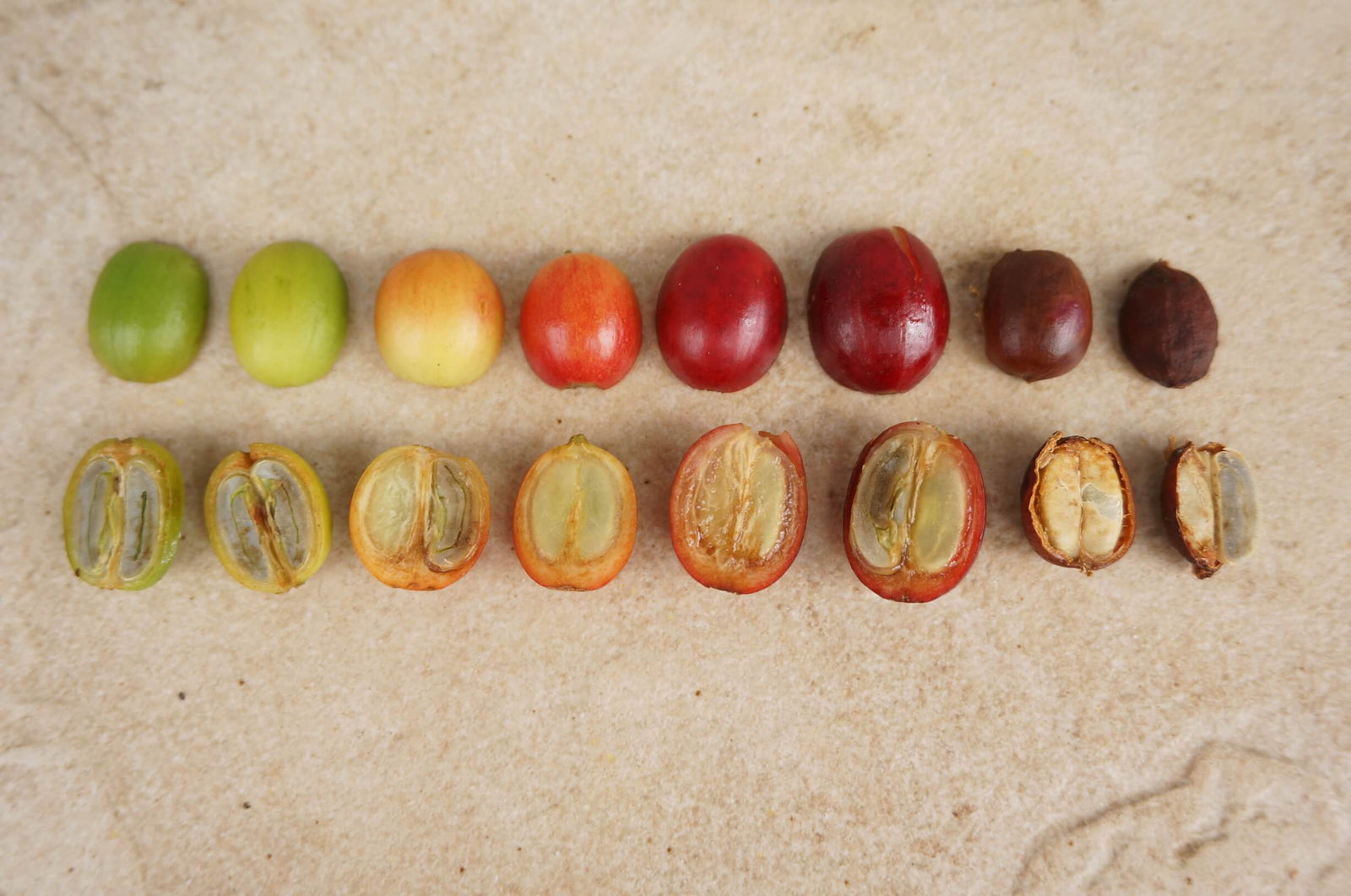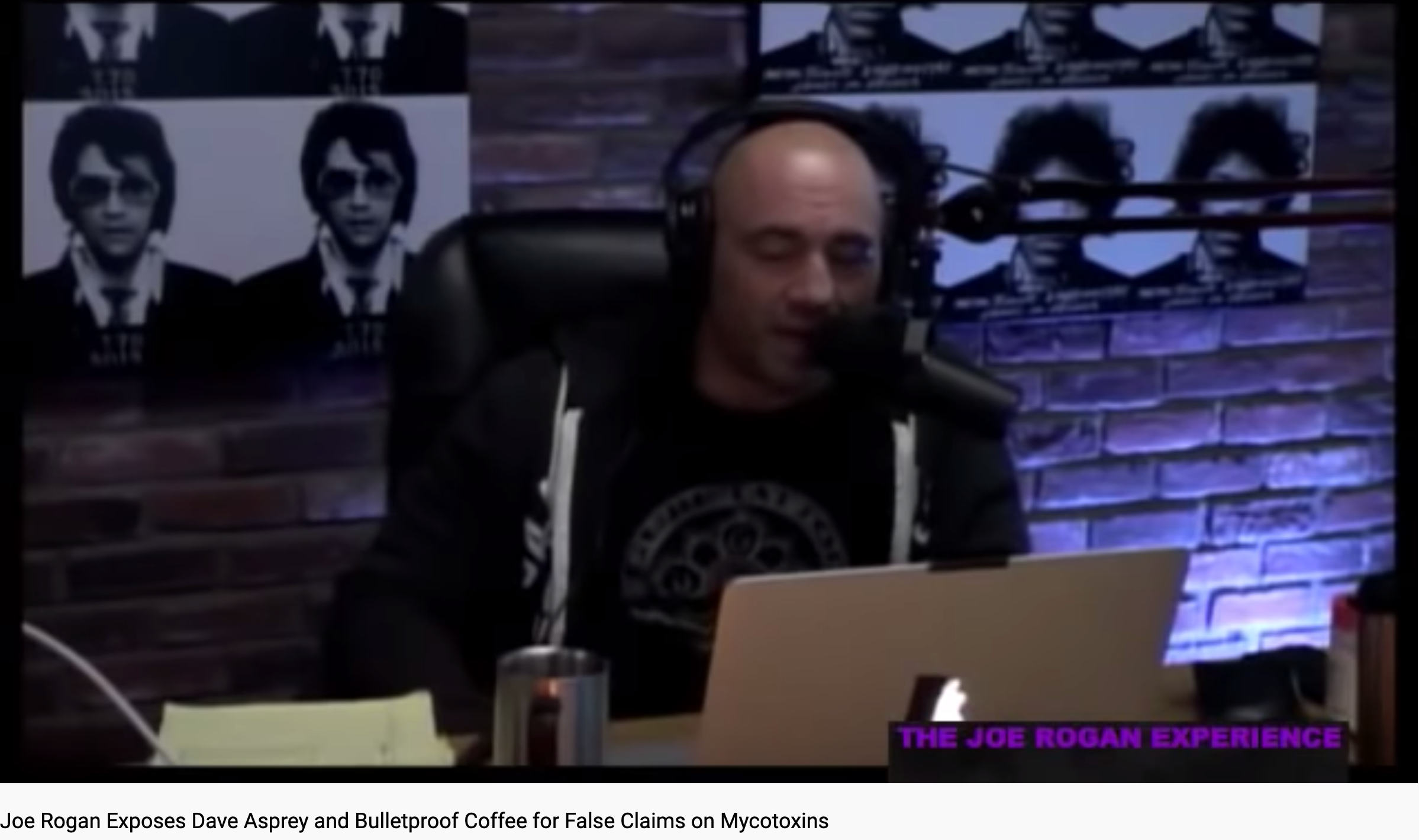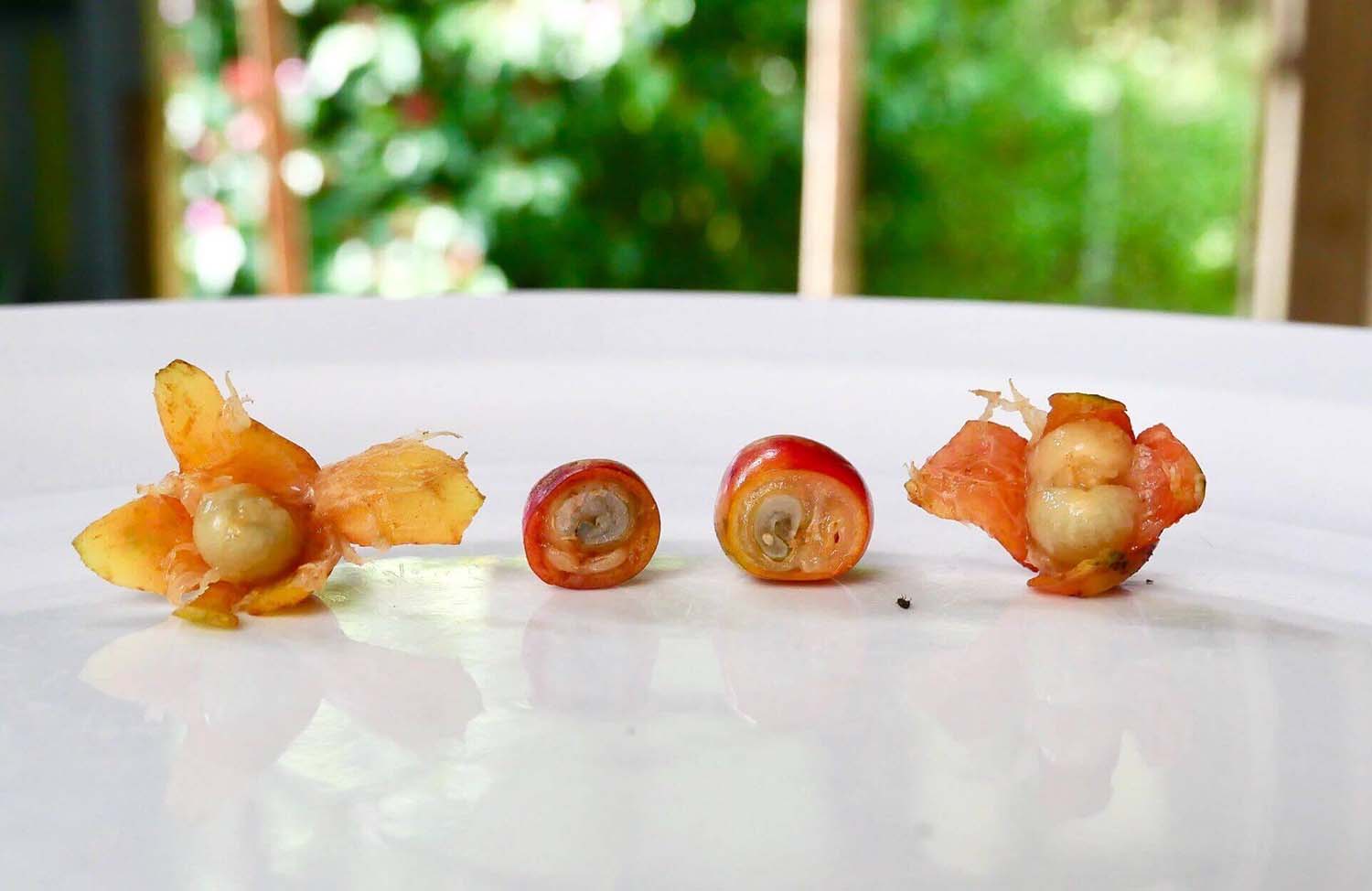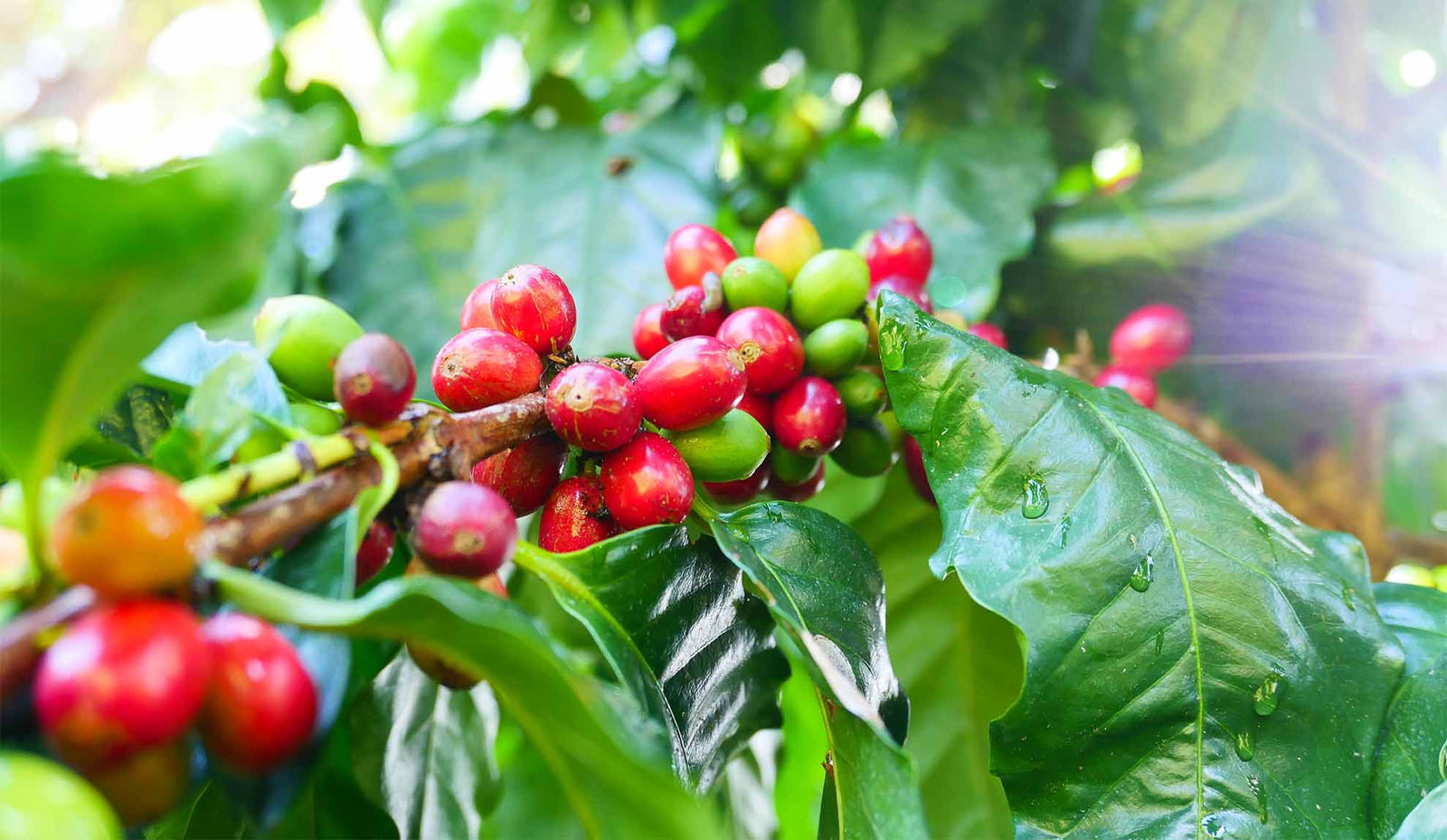How to Find Mycotoxin-Free Coffee
"Dear Big Island Coffee Roasters,
I have a client I’m sharing your coffee with, and she started talking about mold and mycotoxin-free coffee beans, which are supposedly sold by Bulletproof Coffee.
What are mycotoxins in coffee, and is Bulletproof coffee the only solution? Does your coffee have mycotoins?"
This is a question we received and we think it's a great opportunity to clear the air about coffee, mycotoxins, and Bulletproof coffee or brands that claim to have proprietary mold-free coffee.
This article will elucidate on this and the most common questions we receive, like:
What are mycotoxins in coffee?
Are molds in most coffees?
How can I avoid mycotoxins in coffee?
Is Bulletproof coffee the only brand I can buy?
What causes molds in coffee?
Are your coffees free from mold? (yes)
What are mycotoxins, and which coffees could they be in?
Mycotoxins like aflatoxin and ochratoxin can grow on green coffees that have been poorly stored, processed or harvested. They're most prevalent in low-quality coffees that are traded on the NYSE, also known as commodity coffees.
Commodity coffees are typically produced on coffee farms where workers receive extremely low wages, and even where child labor and indentured servitude is involved. These low-grade coffees usually appear as cheap blends, instant coffees, and bulk food service coffees.
Mycotoxins are also found in low-grade nuts, grains, organ meats, and spices.
How can I avoid mycotoxins in my coffee? Which coffees are free from mold?
You can avoid mycotoxins in coffee by purchasing from companies that source specialty-grade coffees. Specialty-grade coffees have been assessed as being free from molds and defects, and have scored over 80 out of 100 by a certified Q Grader.
About 20 - 30 years ago, the specialty coffee industry began implementing quality controls throughout the supply chain to remove defects and improve wages for workers by associating coffee quality with the wages that producers receive.
Today, specialty coffees are served by places like us, Blue Bottle, Starbucks, Stumptown, etc. Specialty coffee companies typically have Q Graders on staff who are professionally trained by the Coffee Quality Institute and certified to assess the quality and defects in green and roasted coffee.Why are mycotoxins found in coffees?
Mycotoxins are found in coffees because, when farmers are chronically underpaid, they have no incentive to care whether the coffee they sell is underripe, overripe, moldy or not. The coffees are purchased or sold by the container (up to 40,000 lb), often based on having a low price. The burlap bags containing the coffees are permeable, meaning the coffee can absorb moisture on the barge during exportation.
In contrast, within the specialty coffee industry farmers are compensated to harvest better quality coffee cherries and process them cleanly and consistently. Buyers then protect their investment (the green coffee) by sealing the coffee in moisture resistant bags.
Trained Q graders and cuppers assess the coffees for mold multiple times, and if mold is detected the coffees are downgraded.
Here's a picture of coffee that's been strip-picked by underpaid workers (left), compared to the right, which is a photo of fresh coffee cherry from our farm.

Is Bulletproof coffee the only coffee that's mold free?
No. Among industry professionals "mycotoxin-free" coffee companies are a bit of a joke, and viewed as gaslighting health-conscious consumers by creating problems with products they have the only solution to. In reality, the specialty coffee industry has had strict quality assessments which exclude mold from specialty coffee for decades.An analogy would be if we were to announce that our Hawaiian coffees were the only Fair Trade Hawaiian coffees available, and charge you a 20% premium. Dig a little deeper and you learn that because all Hawaiian coffees are grown in the USA, there's no need for Fair Trade certification because farmworkers legally receive livable wages, which include social security, health insurance, medicare, and worker's comp.
Joe Rogan reacts to being to being lied to by Bulletproof Coffee founder Dave Aspery.
https://www.youtube.com/watch?v=rwY4H3cNTH0
Bulletproof Coffee vs Specialty Coffee
Long before Bulletproof coffee arrived on the scene, the specialty coffee industry began implementing quality controls throughout the supply chain to remedy social, environmental, and quality issues.
Today you'll find that the specialty coffee industry is remarkably transparent. Bulletproof coffee, on the other hand, is not. Let's look at some key indicators.
1. QUALITY CONTROL STANDARDS
To be considered specialty-grade, green coffee can have zero severe defects -- we call them category 1 defects.
A defect in the specialty coffee industry can be any of the following:
- mold, insect damage, chipped beans, high moisture beans, hollow, shell or floater beans, whole cherries, twigs, stones (which can break your grinder), etc.
Coffees are formally assessed by trained professionals, sorted and ranked on a 100 point scale for their quality many times throughout the supply chain. If a coffee scores 80+ points, it's considered specialty-grade. Coffees below 80 points are commodity-grade or off-grade. They often have poor flavor and are sold as cheap coffees and blenders.
In short, specialty coffees are assessed for consistency, flavor, defects and mold.
Bulletproof coffees is only tested for mold.
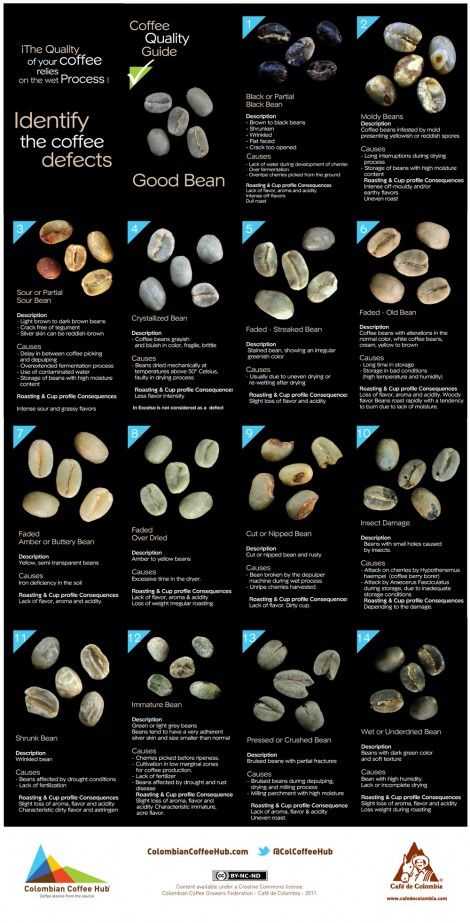
2. TRANSPARENCY
The specialty coffee industry is built upon the pillars of quality, social/environmental responsibility, story, and transparency.
At specialty roasters throughout the US you'll find information like:
- the farm name - origin or elevation - coffee variety - mill or coop - the processing method - roast date - background story - cupping notes and score - you might even get the information on what the producer was paid
Look a little deeper and you'll find an awesome database on coffees tested by the Coffee Quality Institute. Here's a sample report on a Colombian washed coffee that had a very high cupping score (meaning it tasted great), but failed because the Q Graders found 1 fungal defect.
What kind of transparency does a Bulletproof coffee offer? None. It's "proprietary" and therefore shrouded in secrecy.
3. PRICE
Bulletproof coffee claims to have a proprietary coffee processing method that reduces mold in coffees.
The reason why it's proprietary instead of patented is because it's the same ubiquitous process that's been used for hundreds of years: washed coffee processing. Most specialty-grade arabica coffees are produced this way.
The premium charged on Bulletproof coffees isn't for anything special or innovative, which is why it is not patentable.
Have more questions about mycotoxins in coffee? Send them to us at aloha@biglsandcoffeeroasters.com


